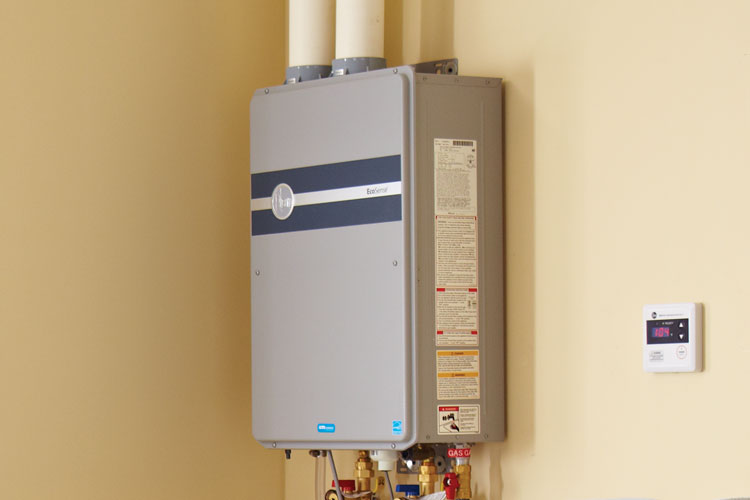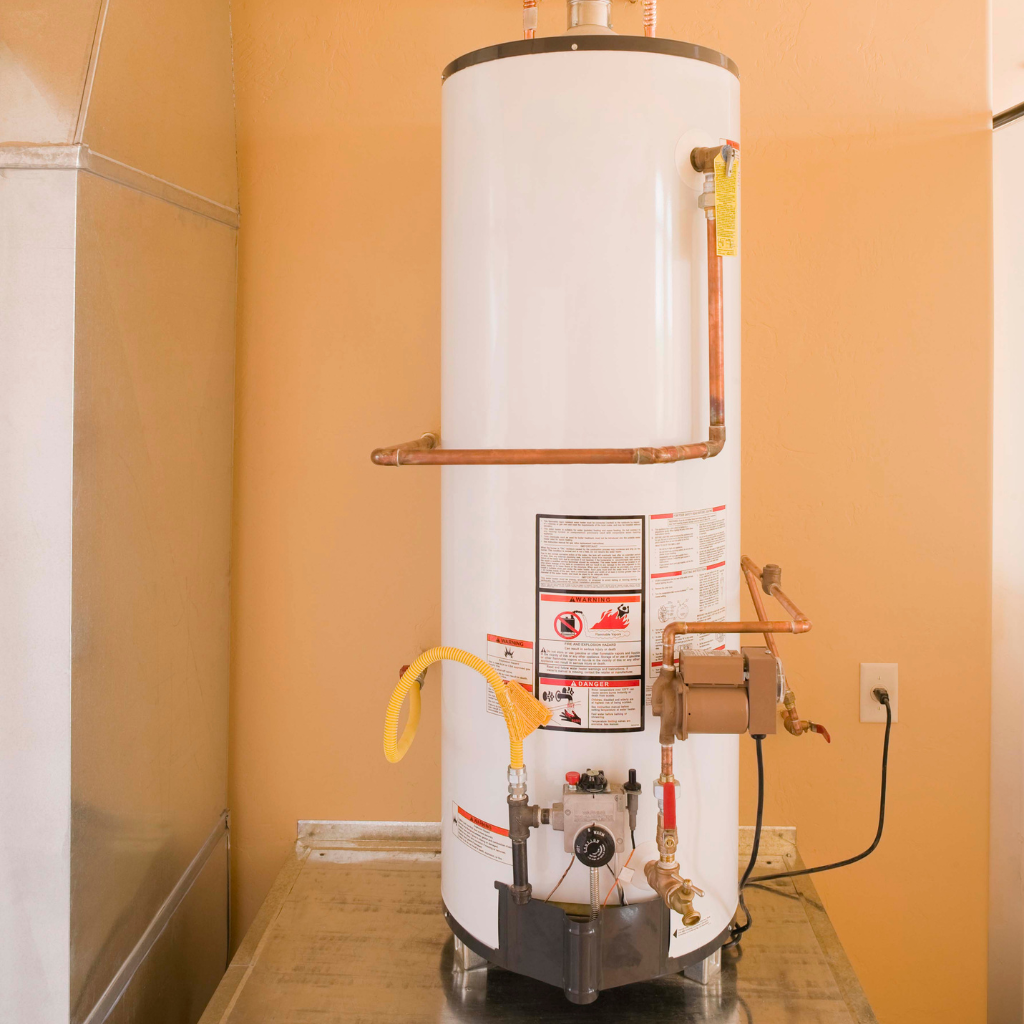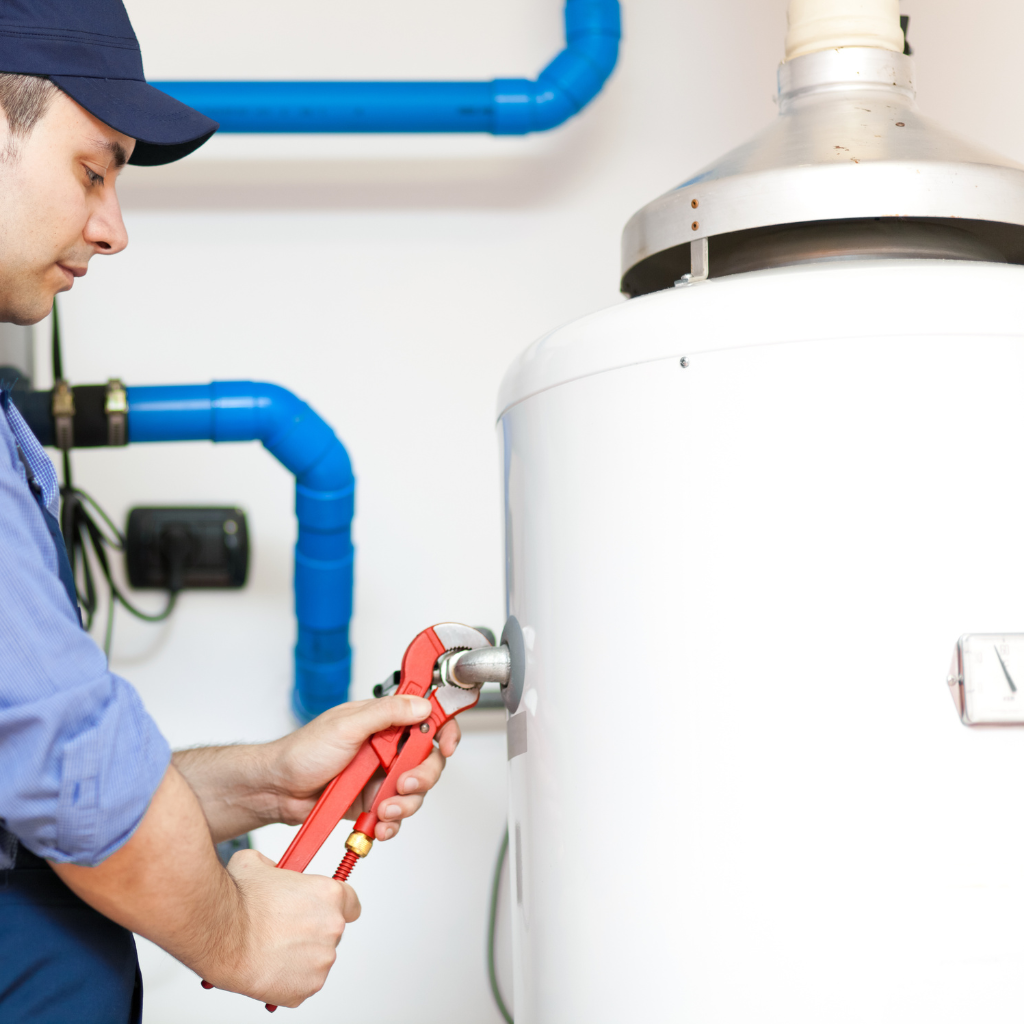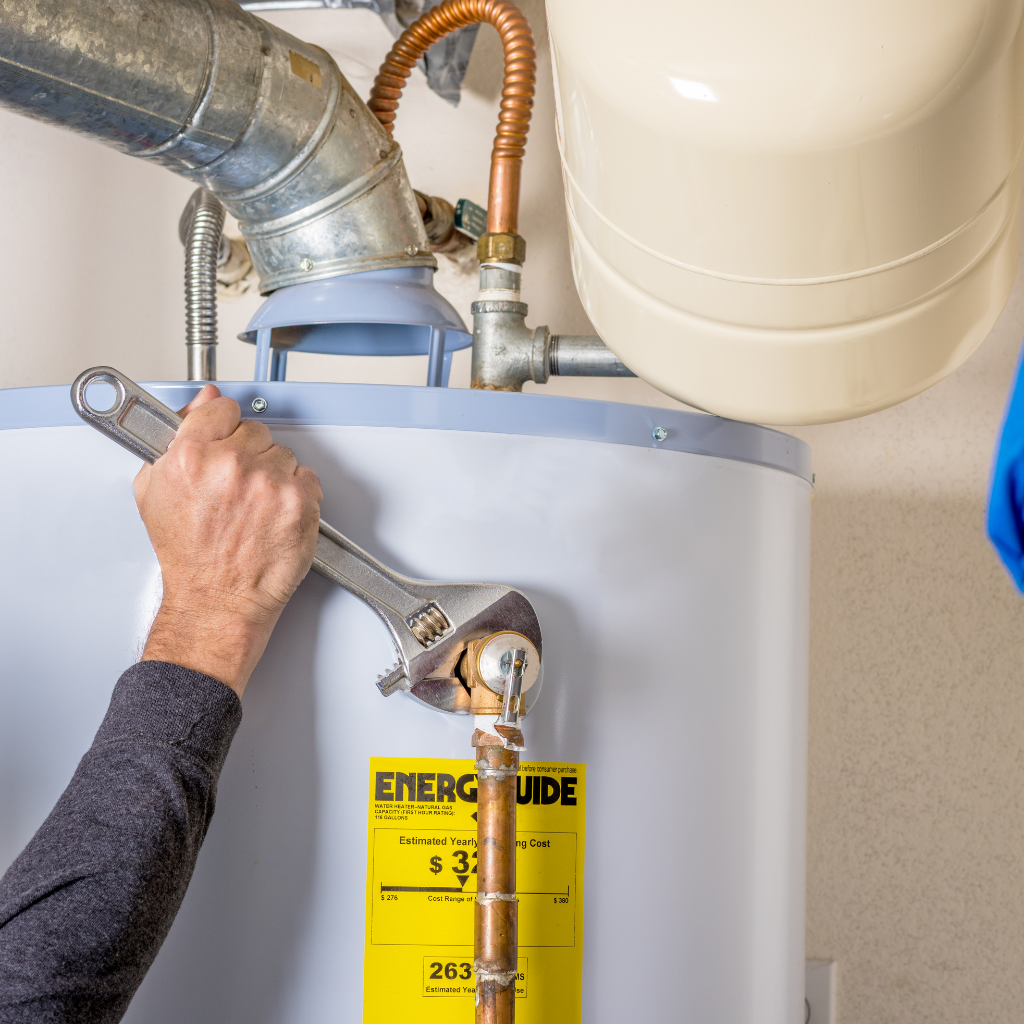Type of Water Heater
When it comes to choosing a water heater, one of the biggest decisions you’ll have to make is whether to go for a tank or tankless model.
Tank Water Heater
Tank water heaters have been around for a long time and are probably the most common type of water heater in homes. The way they work is simple: the unit stores a certain amount of hot water, usually between 30 to 50 gallons, in a tank.
When you turn on the hot water faucet, the cold water that enters the heater is heated to the temperature set on the thermostat. The appliance then fills the tank with hot water, replenishing the supply as it is used. This means that you always have hot water available, but the downside is that you are heating water even when you’re not using it, which can result in wasted energy and higher bills.
Tank water heaters are more affordable, but are less efficient and also only last 8-12 years.
Tankless Water Heaters
Tankless water heaters, as the name implies, don’t have a storage tank. Instead, they heat the water as it flows through the unit, providing hot water on demand.
When you turn on the hot water faucet, sensors inside the heater detect the flow and start the heating process. The water is heated quickly to the desired temperature and delivered to your faucet, shower, or tub. The absence of a tank means that tankless heaters are more energy-efficient and can save you money over time. They also take up less space, making them a good choice for people who live in small homes or apartments.
However, it’s important to note that tankless water heater installation may not be suitable for larger households and may require a higher upfront installation cost.





